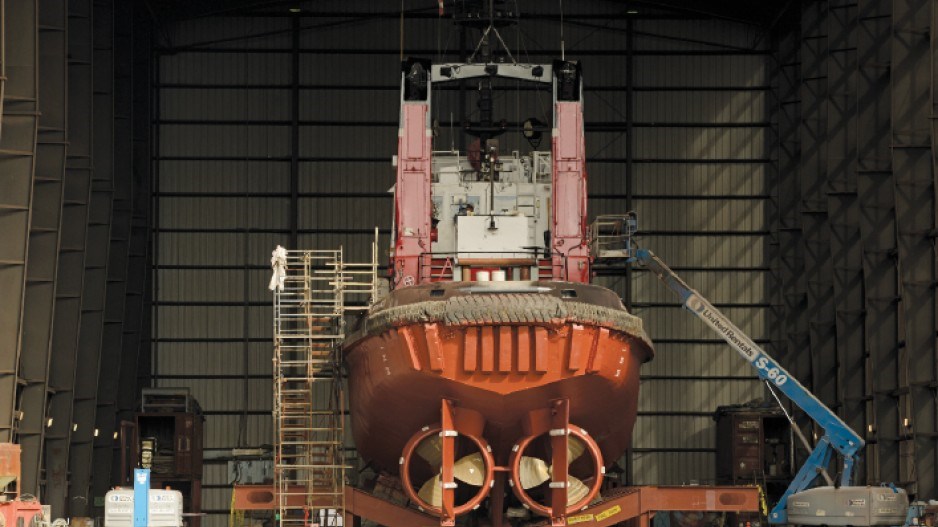A study recently done by the Columbia Institute suggests that outsourcing the construction of BC Ferries' ships to foreign companies is a bad thing for the British Columbia's economy.
Late last year, B.C. Ferries began accepting open bids from manufacturers to build three new ferries that run on diesel and liquefied natural gas (LNG), for between $200 million and $300 million.
Vancouver-based company Seaspan Shipyards was originally shortlisted to bid on the construction, but eventually pulled out, leaving the bidding to companies in Germany, Norway, Poland and Turkey.
The report from the Columbia Institute suggests that this may have been a bad move for B.C.'s economy – the research shows that keeping ship manufacturing in the province would see a $378 million growth in the economy, along with the creation of almost 1,100 jobs. The study also suggests that federal debt could be reduced by almost $100 million.
Charley Beresford is the executive director at the Columbia Institute, and said that the province needs to focus on giving an advantage to local bidding. "What we're seeing from B.C. Ferries is a disconnect. We can see it with the routes they're planning to cut, we can see it with the lack of awareness of the positive impact for the economy to build the ferries here in British Columbia."
She believes that B.C. can meet the needs of ferry manufacturing without having to outsource massive construction and leave domestic customers shouldering the debt and costs. In fact, according to the report, building ferries in B.C. would increase government tax revenues by $36 million provincially and $66 million federally.
B.C. has made serious attempts to keep shipbuilding local in the past, however. In 1994, plans began to build three high-speed aluminum catamaran ferries in B.C. known as the PacifiCat line. The project was a failure, with massive delays to the completion and deployment of the vessels, a failure to keep costs below even double the budget, and problems with the completed ferries that saw them inactive after only a year in 2000.
Much of the blame was laid at the feet of the local builder Catamaran Ferries International, which was inexperienced and mismanaged. B.C. Ferries' decision to go with an open bid for the construction of its most recent ships suggests that there is little incentive for them to go the domestic route again.
Beresford said that the decision is partly that of the B.C. government, and that they should have a vested interest in building the local economy and building manufacturing jobs. "Interestingly enough, manufacturing jobs in British Columbia have actually been declining. Given the ambitious jobs plan, you'd think they'd want to reverse that direction because B.C. shipbuilding is counted as a manufacturing industry."
The projected impact to the manufacturing industry is $132 million, with another $52 million in construction if changes are made to comply with the suggestions outlined in the study.
"There are a number of other ferries that need to be built," Beresford said. "So going forward there's an opportunity for B.C. Ferries here, that people in British Columbia would like to see those ferries built at home."




